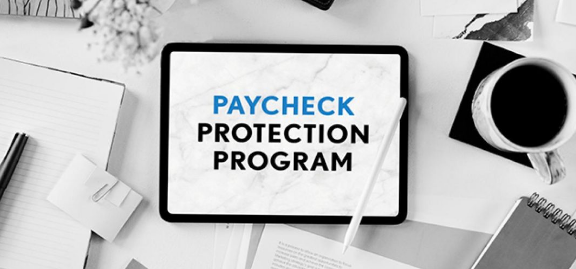New PPP Guidance Regarding Certification of Necessity – Eviction Moratorium Updates for City and County of Los Angeles

For PPP Loans Less Than $2 Million, Presumption That Required Certification Regarding Necessity In Good Faith
New guidance posted by the U.S. Small Business Administration (SBA) on May 13, 2020, provides that businesses that together with their affiliates that accepted Paycheck Protection Program (PPP) funds of less than $2 million will be assumed to have performed the required certification concerning the necessity of their loan requests in good faith.
The guidance, provided as Question 46 in Treasury’s Q&As related to the PPP, states that borrowers with loans of more than $2 million may still have an adequate basis for making the required good-faith certification, based on their individual circumstances and the language of the certification and SBA guidance.
On April 23rd, the SBA warned that businesses with substantial access to liquidity may not qualify for PPP loans, and several larger companies returned their PPP funds. On April 28, Treasury Secretary Steven Mnuchin and SBA Administrator Jovita Carranza announced that the SBA would review all PPP loans in excess of $2 million to make sure borrowers’ self-certification for the loans was appropriate.
According to the SBA, borrowers with loans below the $2 million threshold are less likely to have had access to adequate sources of liquidity in the current economic environment than borrowers who obtained larger loans. The $2 million threshold also will help the SBA conserve its resources and focus its reviews on larger loans.
If the SBA determines during its review that a borrower lacked an adequate basis for certifying the necessity of its loan, the SBA will seek repayment of the outstanding PPP loan balance and inform the lender that the borrower is not eligible for loan forgiveness. The SBA will not pursue administrative enforcement or referrals to other agencies if the borrower repays the loan after receiving notification from the SBA.
Notwithstanding the fact that this guidance appears to be good news for PPP borrowers, there are some takeaways and remaining ambiguities that should be kept in mind:
- Loans less than $2 million: The new SBA guidance does not mean that loans of less than $2 million will not ultimately be audited. There could be random and targeted audits of PPP loans in this threshold with respect to loan eligibility requirements other than the need certification, the use of the PPP loan funds, and/or the calculation of loan forgiveness. What the new guidance does provide assurance on is that the borrower’s certification of need will not be questioned as a part of such an audit.
- Loans more than $2 million: For these loans, repayment will be required in full after notification from the SBA that the SBA has determined the borrower lacked an adequate basis for the required need certification, and as such is not eligible for forgiveness. Questions remain regarding when exactly the proceeds will need to be repaid and if there is any appeals process. There is also the possibility that a civil action could arise by a whistleblower under the False Claims Act, but the ramifications of such a claim would need to be flushed out on a case by case basis.
New Ordinance Modifies Eviction Moratorium for City of LA
The Los Angeles City Council adopted Ordinance No. 186606 (http://clkrep.lacity.org/onlinedocs/2020/20-0147-S19_ORD_186606_05-12-2020.pdf) which updates the existing ordinance affecting tenants in the City of Los Angeles. The Ordinance modifies the existing protections with respect to the moratorium on commercial and residential evictions.
Specifically, with respect to commercial evictions, the Ordinance provides that:
- Except for tenants that are multi-national companies, publicly traded companies, or companies that employ more than 500 employees, commercial tenants cannot be evicted until three (3) months following the Local Emergency Period, if the tenant is unable to pay rent due to the financial impacts of COVID-19.
- Eligible circumstances include: (a) loss of business due to COVID-19 workplace closures, (b) child care expenditures due to school closures, (c) health care expenses as a result of a COVID-19 sickness or the tenant caring for a family member that is sick with COVID-19 or (d) other reasonable expenditures that are a result of the government-ordered emergency measures.
- Landlords may not “endeavor to evict” tenants during the Local Emergency Period for circumstances due to COVID-19. The term “endeavor to evict” is defined in the Ordinance as any “conduct where the Owner lacks a good faith basis to believe that the tenant does not enjoy the benefits of this article [of the Ordinance] and the Owner serves or provides in any way to the tenant: a notice to pay or quit, a notice to perform covenant or quit, a notice of termination, or any other eviction notice.”
- Commercial tenants have three (3) months after the expiration of the Local Emergency Period to pay back deferred rent.
- Landlords cannot charge interest or late fees on unpaid rent during the Local Emergency Period.
With respect to evictions for residential tenants, the Ordinance provides:
- During the Local Emergency Period and for twelve (12) months after its expiration, no Owner shall endeavor to evict or evict a residential tenant for non-payment of rent during the Local Emergency Period if the tenant is unable to pay rent due to circumstances related to the COVID-19 pandemic.
- Eligible circumstances include: (a) loss of income due to a COVID-19 related workplace closure, (b) child care expenditures due to school closures, (c) health-care expenses related to being ill with COVID-19 or (d) caring for a member of the tenant’s household or family who is ill with COVID-19, or (e) reasonable expenditures that stem from government-ordered emergency measures.
- Tenants shall have up to twelve (12) months following the expiration of the Local Emergency Period to repay any rent deferred during the Local Emergency Period.
Note – The Local Emergency Period is retroactive starting March 4, 2020, and goes through the date when Mayor Garcetti deems the local emergency over.
LA County Eviction Moratorium Extended Until End of June
Commercial and multifamily landlords in Los Angeles County will not be able to evict tenants until at least June 30, the Los Angeles County Board of Supervisors has decided. The Board of Supervisors on Tuesday, May 12th, extended its moratorium on commercial and rent eviction through the end of June and will continue to monitor the situation on a month-to-month basis.
California’s Judicial Council Suspends Issuance of Summons and Entering Default Judgments in Eviction Proceedings Across the State
Notwithstanding the forgoing moratorium clarifications for the City of LA and County LA, the California’s Judicial Council (the rule-making body for California state courts) has also taken action that applies to evictions state-wide. In response to the COVID-19 pandemic, the Judicial Council has placed on hold nearly all evictions in the state. The council’s vote at an emergency meeting last month effectively suspended all unlawful detainer actions until 90 days after California’s COVID-19 state of emergency ends (as determined by Governor Newsom).
Specifically, the rules approved by the council do the following:
- Suspend the issuance of a summons in an unlawful detainer action, unless the court finds there is a health and safety reason. This means new unlawful detainer cases cannot be filed in most circumstances.
- Prevent entry of default and/or default judgments in unlawful detainer cases, unless the court finds there is a health and safety reason and the defendant has not appeared.
- Mandates that unlawful detainer trials be set no earlier than 60 days after a request for trial, again unless there is a health and safety reason.
If you have questions regarding any of the foregoing, please do not hesitate to reach out.
 |
 |
| ERICA M. SOROSKY esorosky@ptwww.com (949) 851-7271 |
ERIN K. OYAMA eoyama@ptwww.com (949) 851-7288 |

